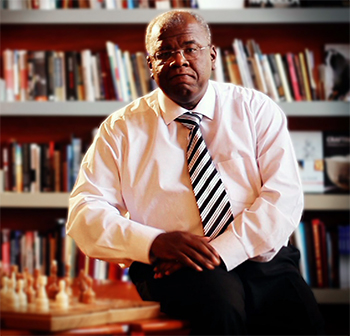Latest News Archive
Please select Category, Year, and then Month to display items
22 September 2021
|
Story Michelle Nöthling
|
Photo Supplied
 Annemarie Le Roux.
Annemarie Le Roux.
“I love working with children.” This is one of the first things Annemarie le Roux mentions when asked to describe herself. This love for children propelled Annemarie into the field of education and she graduated in 2006 with a BEd in Foundation Phase at the UFS. Annemarie immediately immersed herself in the Deaf community, enriching the lives of children at the Thiboloha School for the Deaf in Qwaqwa and the De la Bat School for the Deaf in Worcester.
The academic world enticed Annemarie back to the University of the Free State (UFS) and she was appointed as a junior lecturer in the Department of South African Sign Language (SASL) and Deaf Studies in 2013. Going from strength to strength, Annemarie completed her master’s degree in SASL in 2019, and published an
article earlier this year that she co-wrote with Marga Stander. In this article, they found that SASL “has become an increasingly popular language that hearing university students want to learn as a second language” and subsequently explored different teaching methods used for this emerging group of interested students.
Although now firmly established in academia, Annemarie is still committed to the practical application of SASL. “I am closely involved in student and community engagement through the
SIGNALS Sign Language student association that helps empower the Deaf community and South African Sign Language.” She also interprets for the Deaf community whenever she gets an opportunity, as well as for Deaf students in class and meetings.
On the importance of Sign Language and the recognition of the Deaf community in South Africa, Annemarie believes it will open greater opportunities for development. “More people will be able to learn SASL, and it might even become a subject in school for hearing children.”
Prof Jonathan Jansen elected as new ASSAf President
2016-10-28

Prof Jonathan Jansen, former Vice-Chancellor
and Rector of the UFS, has been appointed
President of the ASSAf.
Photo: Supplied
The Academy of Science of South Africa (ASSAf) has elected former Vice-Chancellor and Rector of the University of the Free State (UFS), Prof Jonathan Jansen, as its new President for the next four years. He succeeds Prof Daya Reddy. Distinguished Professors Brenda Wingfield and Barney Pityana were elected ASSAf’s new Vice-Presidents.
The minds that shape tomorrow
The academy’s directive is to advise and provide the government with evidence-based solutions to national problems; inspiration, and examples of how science and technology can be applied for the benefit of society. ASSAf represents scientists in South Africa but also represents the country in the international community of science academies.
Prof Jansen, who is currently a Senior Research Professor at the UFS and a Fellow at the Center for Advanced Studies in the Behavioral Sciences at Stanford University, is also a Fellow of the American Educational Research Association, a Fellow of The World Academy of Sciences, and President of the South African Institute of Race Relations.
The great achieve greatly
Prof Jansen’s book, Knowledge in the Blood: Confronting Race and the Apartheid Past won the Nayef Al-Rodhan Prize, the largest award from the British Academy for Social Sciences and Humanities, for its contribution to scholarly excellence and transcultural understanding.
In 2013, he was awarded the Education Africa Lifetime Achiever Award in New York and the Spendlove Award from the University of California for his contributions to tolerance, democracy and human rights. He holds honorary degrees from the University of Edinburgh, the University of Vermont and Cleveland State University.
Plans for the future
His recent books include Leading for Change, which was published this year. He is completing a new book explaining the current crisis in, and future prospects of, South African universities, due for release in mid-2017.